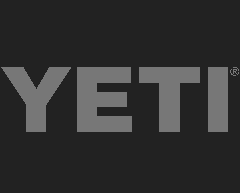“Preventing oyster overharvest will help protect wild public reefs that provide nursery and refuge habitats for other marine life, stabilize shorelines, enhance water quality, and reduce coastal erosion.”
By CCA Advocacy Director Shane Bonnot
Marking a major step toward reducing pressure in an overcapitalized oyster fishery, Coastal Conservation Association Texas (CCA Texas) was instrumental in facilitating the most consequential oyster license buyback round in the state’s history that will reduce harvest pressure and help restore balance to the resource. From March to May 2025, the Texas Parks and Wildlife Department (TPWD) received 115 commercial oyster boat license offers as part of its Oyster License Buyback Program. Ultimately, 112 of the 115 interested offers signed contracts, reducing the total number of oyster licenses in Texas by 20%, an enormous step towards ensuring a more sustainable future for our bays and estuaries. In addition to direct benefits for the oyster fishery, preventing oyster overharvest will help protect wild public reefs that provide nursery and refuge habitats for other marine life, stabilize shorelines, enhance water quality, and reduce coastal erosion.
This achievement was made possible through strong partnerships and bold investments. Earlier this year, the CCA Texas State Board of Directors approved a $1 million contribution to serve as anchor funding for this latest buyback round. That commitment helped galvanize additional support through the Texas Parks and Wildlife Foundation and other private donors.

Official Check Presentation: Billy Phenix, Mike Prasek, Jr. (President, CCA Texas), John Carlson (Chairman, CCA Texas), Phil Lamb, Robby Byers (Executive Director, CCA Texas), David Yoskowitz, Ph.D. (Executive Director, TPWD), Anne Brown (Executive Director, TPW Foundation), Joey Park, Julie Shaddox, David Yeates, Randy Poelma, Dakus Geeslin, Emily House, and Austin Taylor
“We’re thrilled with the success of this effort,” said Robby Byers, Executive Director of CCA Texas. “It’s a testament to the vision of our leadership, and the dedication of our chapters and supporters, whose grassroots fundraising made this possible.”
An Overcapitalized Fishery
In 2005, the Texas Legislature enacted a moratorium on the issuance of new commercial oyster-boat licenses to reduce harvesting pressure on public oyster reefs. However, the oyster industry aggressively lobbied for a one-year grace period, which was ultimately included in the legislation, triggering a rush of new applications and causing the number of licenses to swell from approximately 350 to nearly 760 before the moratorium was fully implemented. Between 2006 and 2016, that number gradually declined to just over 550 licenses due to attrition and non-renewals, where it remained relatively flat.
Oyster license buybacks were first authorized by the Texas Legislature in 2017, but initial efforts faced challenges and limited participation. From 2018 through 2024, the Texas Parks and Wildlife Department (TPWD) conducted eight rounds of oyster license buybacks, receiving a total of 78 bids. Many of these bids exceeded the state’s ability to complete the transaction, highlighting the need for support from conservation partners to close the gap. In Round 8 alone, TPWD received 9 bids, with an average bid of $45,611, a mode of $50,000, and a high of $100,000. While TPWD has a proven track record of managing effective, long-term buyback programs for shrimp (since 1995), crab (1997), and finfish (1997), the oyster license buyback program proved difficult to gain traction.
That changed in 2025. In a strategic shift from previous reverse-bid auctions, TPWD offered a flat rate of $30,000 per oyster license. The simplified process with an aggressive offer attracted significant interest, and now 112 of the 545 available oyster licenses are removed from the fishery. Importantly, more than half of those had reported landings in at least three of the last five seasons, meaning the licenses retired will yield meaningful conservation benefits.
“This is conservation through collaboration,” said Shane Bonnot, CCA Texas Advocacy Director. “Our $1 million contribution, alongside state funding and generous private donors, shows what’s possible when partners come together to make a positive impact.”
A United Front for Conservation
Reducing license pressure on the public reef fishery has long been a priority for conservation groups and responsible members of the oyster industry. Fewer licenses mean less effort concentrated on sensitive reef systems, allowing habitat to recover and reducing conflict over limited resources. The buyback program is funded in part by a surcharge on commercial licenses, ensuring that the fishery itself contributes to long-term sustainability. Additional state funds are achieved through saltwater stamp revenues, which are appropriated by the Texas Legislature.
CCA Texas is deeply grateful to the other philanthropic partners who made this historic round possible, including the Laurie and S. Reed Morian Foundation, the Brown Foundation, the Earl C. Sams Foundation, Jeffery and Mindy Hildebrand, Beaver and Joanie Aplin, John and Mary Eads, and Bobby and Sherri Patton.
Looking ahead, CCA Texas expects additional rounds of oyster license buybacks to follow this successful model. Funding requests from TPWD and support from the Texas Legislature will be essential to securing the necessary state funding to ensure continued success.
We remain firmly committed to advancing strategic initiatives that safeguard Texas’ coastal resources, strengthen our fisheries, and preserve healthy, productive ecosystems for future generations. Together, we’re proving that conservation works, especially when we work together.




